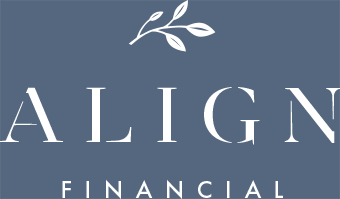As we near the end of the year, colder weather, shorter days, and last-minute holiday shopping makes financial planning and tax preparation the last thing on anyone’s mind. Still, getting a jump on next year’s tax season can make the first part of 2021 feel a lot less stressful. Even if you’re not quite ready to start crunching numbers for your 2020 tax return, here are a few steps you can take now to ensure you’re well prepared for the new year.
#1: Gather Your Documents
Although you’ll need to wait until the beginning of 2021 to gather all of your 2020 tax documents, you can start to get organized now. Some helpful information to have readily available includes last year’s federal tax return (and state tax return, if applicable), as well as Social Security numbers for yourself, your spouse, and any dependents you plan on claiming for.
If you’re working, be on the lookout for your W-2 or 1099-MISC(s) in late January or February. You’ll need these forms to report your earnings throughout the year. In addition, any investment earnings will be reported on forms 1099-INT for interest, 1099-DIV for dividends, and 1099-B for broker-handled transactions. If you’ve set up your tax documents to be delivered to you online, don’t forget to check for them in early 2021.
You can also begin to account for applicable deductions, credits, and payments that may offset your income taxes in 2020. Retirement account contributions, educational expenses (including student loan payments), certain medical expenses, charitable donations, and state and local taxes may all be deducted from your gross income.
In addition, you can see if you qualify for certain tax credits, such as American Opportunity and Lifetime Learning credits, the Child Tax Credit, and/or the retirement savings contributions credit, which can be used to reduce your overall tax liability. Finally, if you’ve made estimated tax payments throughout the year, be sure to have those receipts handy.
#2: Hire an Accountant You Can Trust
The nuances of tax accounting are continually changing, and most of us don’t have the time or inclination to keep up with these details year after year. I always tell my clients that the value of good advice far exceeds the cost of hiring a professional. In my experience, the confidence gained from outsourcing this responsibility to a professional almost always outweighs the price tag.
If you don’t already have a trusted tax advisor or accountant to help you prepare your taxes, consider asking friends, family, colleagues, or your financial advisor for recommendations. Retail franchises may make sense if your tax return is relatively straightforward. However, if your return is more complex—or you simply prefer to work with someone who can offer more personalized advice—consider hiring a CPA or tax attorney for help this tax season. Find someone who has specialized knowledge and experience working with clients like you.
#3: Remember: Paying Taxes Means You’re Making Money
Though no one enjoys paying taxes, it’s important to remember that owing taxes means you’re making money! It’s simply the cost of earning an income.
Still, during tax season you can think about steps to minimize your tax bill so you’re not overpaying each year. A good financial plan will help you create a strategy around realizing gains in your investment portfolio or drawing down your retirement accounts in a tax-efficient manner. Talk to your financial advisor about ways you can reduce your tax bill through careful planning and tax-conscious investment management.
#4: Important Dates and Contribution Limits for 2020 and 2021
Be sure to keep these dates and limits in mind so you can maximize any deductions and credits available to you in 2020.
Tax Payment Deadlines
- January 31, 2021: W-2s are due from employers while forms 1099 are due for payers of interest, dividends, and other types of income
- April 15, 2021: Your 2020 tax forms and any tax payments you owe are due to federal and state governments
- October 15, 2021: If you filed Form 4868 extending the due date of your tax return, you must file your tax return and pay any tax, interest, or penalties due by this date
- April 15, June 15, September 15, and January 15: Estimated tax payments are due for taxpayers who don’t have adequate taxes withheld by an employer
Retirement Contribution Deadlines and Limits
- April 15, 2021: This is the last day to open an IRA or make an IRA contribution for the 2020 tax year, even if you’ve gotten an extension for filing your taxes
- October 1, 2020: The last day for establishing a SIMPLE IRA for the 2020 tax year
- 2020 401(k) Contribution Limits: $19,500; catch-up limit is $6,500
- 2020 IRA Contribution Limits: $6,000; catch-up limit is $1,000
- 2020 SIMPLE Retirement Account Contribution Limit: $13,500
Healthcare Deadlines and Limits
- November 1, 2020 to December 15, 2020: Open Enrollment Period for 2021 healthcare coverage
- January 1, 2021 to March 31, 2021: If you miss your Initial Medicare Enrollment Period, you can sign up during Medicare’s General Enrollment Period, and your coverage will start July 1
- 2020 AGI Limits for Premium Tax Credits on the Marketplace: $49,960 for a single person and $103,000 for a family of four
Tax Season 2021: Don’t Wait Until the Last Minute
Tax preparation can be stressful, and any tax professional will tell you how busy tax season gets. You’re more likely to forget something or make a mistake if you leave your taxes until the last minute. Whether you decide to do it yourself or hire a professional, be sure to leave ample time to gather your documents and check the appropriate boxes for 2020.
If you have any questions or would like a recommendation for a tax professional to help you prepare your taxes, I’d be only too happy to have a chat.













